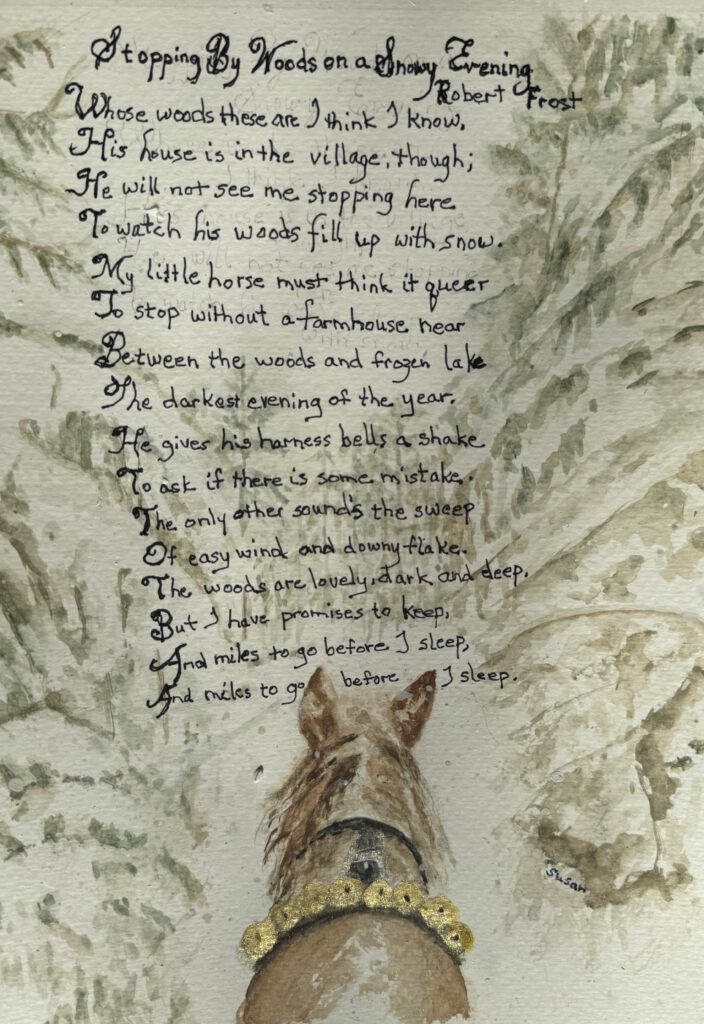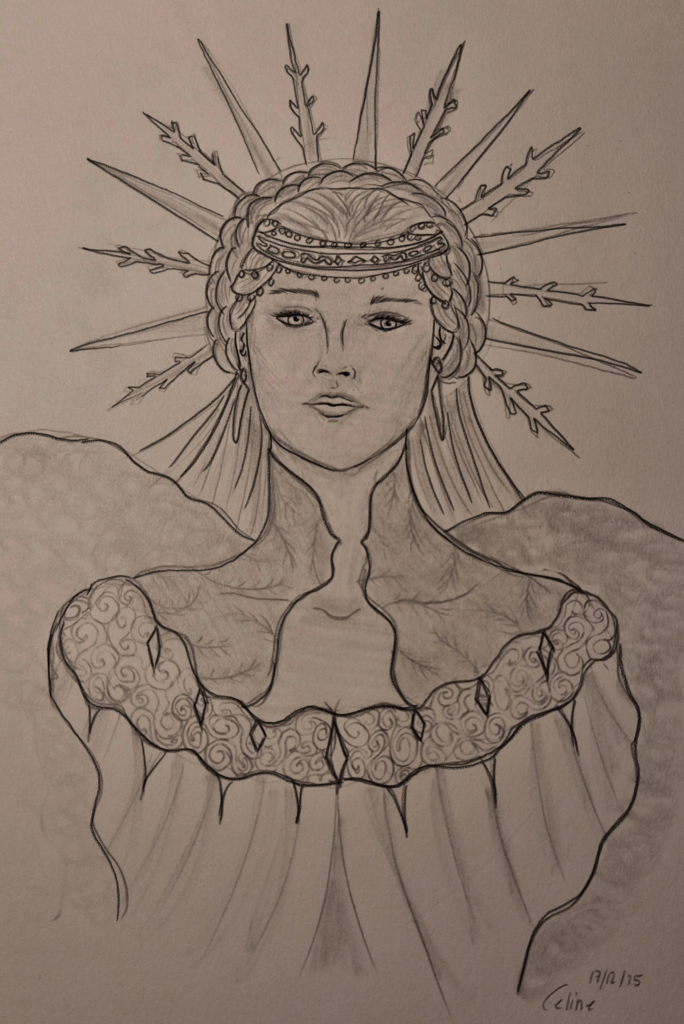"These things astonish me beyond words": Wordplay in William Carlos Williams's Poetry
Margit Peterfy
Published in Connotations Vol. 14.1-3 (2004/05)
-and I? […] whistle a contrapuntal melody to my own fugue!1)
A poem is a capsule where we wrap up our punishable secrets.59)
Wordplay, in terms of its reception, may be immediately obvious (because the reader expects it, or because it is clearly foregrounded as such in the text), or it may show its iridescent nature only on rereading, maybe with the help of additional information, in a moment of revelation. This revelation of something that is unsuspected qualifies in turn as a surprise. Unlike surprises in the real world, textual surprises are almost always pleasant, in that they tend to provoke an immediate, refreshing, almost somatic reaction; a moment of exhilaration, of discovery. So, when William Carlos Williams died in 1963, Denise Levertov wrote approvingly of his poetry: "One is forever coming across something new on pages one thought one had known long since."2) Critical understanding of Williams's work has explored many insightful directions since then, but there is still something new to come across. Although especially the early popular image of Williams as a poet of ingenuous simplicity has been modified in recent decades,3) his recurring and systematic use of intricate and multivocal signification in the form of wordplay, mostly in puns, has, to my knowledge, not been documented so far.60)
There seem to be three main reasons for critical insensitivity to puns and other kinds of wordplay in Williams's work: (1) the suspicion that puns are, at best, a form of silly jokes, and, at worst, narcissistic, immature fabrications and vehicles of "pseudo−logic";4) (2) the persistent notion of Williams as a poet whose passion is of the blood, not of the [→page 88] inkpot;61) and (3) Williams's own complete refusal to discuss openly and directly the role of puns in his many statements about his writing. This last observation probably plays the greatest role in explaining the critical lacuna, and it may be considered puzzling that Williams should have been silent about an aspect of his work that, as I shall argue, he used consciously and with great care. Although he returned repeatedly to metapoetical reflections in his essays, prefaces, reviews, and in hybrid texts such as Spring and All, The Embodiment of Knowledge, or The Autobiography of William Carlos Williams,5) he kept all evidence of his fondness for puns (and other wordplay) implicit and circumstantial. In fact, the single unequivocal statement about his liking for puns that I have been able to identify comes not from him, but from his wife, who, after his death, explained to an interviewer: "His titles were his own, not epigraphs—they are creative titles and he liked punning. Make Light of It had two meanings—to take lightly—and to give light on the subject."6) Why Williams himself should have been so secretive is a question that cannot be answered within the scope of this essay. What can be done, however, is to present a number of examples illustrating his method.
Although the linguistic and rhetorical systemization of puns is a complex issue, punning itself is an elemental and universal form of wordplay. Florence Williams expected her interviewer to know how puns work, and most speakers of English have an intuitive understanding of the phenomenon. Nevertheless, the polysemy of puns or other kinds of wordplay poses, on reflection, fundamental and highly intricate questions about the nature of language and text. About a decade ago, punning, paronomasia and related wordplay were discussed in the pages of Connotations in great and interesting detail.7) However, for current purposes (i.e. to argue that Williams used wordplay at all), Derek Attridge's functional definition of the pun should suffice: "Two similar sounding but distinct signifiers are brought together, and the surface relationship between them invested with meaning through the inventiveness and rhetorical skill of the writer."8) The following interpretations are intended to give a first [→page 89] impression of the "inventiveness and rhetorical skill" that Williams exhibited.62)
* * *
Williams's puns testify to his exceptional gift for language and to his repeatedly stated dedication to the "word." His linguistic resources range from the specialist language of biology, through music, to the influence of other languages. At the same time, wordplay is for him not just 'play,' but a way of investigating the nature of experience and of poetic expression. Thus my first example, the poem "The R R Bums," introduces a pun that is both a commentary on the way the poet perceives the world, i.e. literally and metaphorically 'sees' it, and also a self−referential reflexion on poetical traditions. Although "The R R Bums" is from a later period of Williams's writing, I would like to start with it because it is so typical in its deliberate, but not immediately obvious wordplay.9) It is a one−stanza, haiku−like poem about the homeless:
The R R Bums
Their most prized possession—
their liberty—
Hands behind a coat
shiny green. Tall, the eyes
downcast—
Sunlight through a clutter of
wet clouds, lush weeds—
The oriole!
Hungry as an oriole.
This poem combines a strong visual sensation with an echo of a Romantic idealization of poverty. In spite of the fact that the "R R Bums," the homeless, are generally considered the most vulnerable members of society, their lives on the road and their absolute poverty seem to be presented as a form of absolute freedom. The comparison to an oriole might rest on the fact that the bird is migratory, but the [→page 90] reason why Williams preferred "oriole" over, say, another 'transient' bird is due neither to coincidence, nor to ornithology, but to the word's phonetic features. As a homophone with 'aureole,' "oriole" serves as a pun and a semantic pivot in the poem.
The term 'pivot,' in connection with puns, is a metaphor that can be readily grasped via analogy: it is a string of sounds to which two meanings with two different functions are connected. But 'pivot' is also a technical term for a kind of Japanese pun, "occurring when a word with two meanings is used only once as a sort of pivot on which two wheels turn. In this case, the first part of the poetical phrase has no logical end, and the latter part no logical beginning. […] An example of what might be termed pivot−puns."10) It is not impossible, it is not even unlikely, that Williams knew about this poetical device—after all, his friend and one−time mentor Ezra Pound was familiar with Japanese poetry.
In "The R R Bums," the pivot−pun is the central poetical device. It is important to realize that this is a pun that works only when the poem is read out aloud. By hearing the poem, without the printed version in front of us, we can directly identify the first "oriole" as 'aureole,' coming as it does just after the line "sunlight through a clutter of wet clouds." 'Aureole' is related to light, it is a "radiance surrounding the head or the whole figure in a representation of a sacred personage" or "any encircling ring of light or color; a halo."11) The poem gives a number of further clues that help to integrate the association with an aureole, suggesting an awesome, lofty resplendence. The wanderers together make a regal impression: one of them has his hands behind his coat, is tall and walks with downcast eyes, as if he were pondering over some important decision. The coat is not just green but "shiny green" (no matter if this is the result of year−long use) and he is surrounded by rich, "lush" vegetation. The climax of this association with luxury is reached when "sunlight through a clutter of wet clouds" creates an unexpected light effect.
With the final simile "Hungry as an oriole" the poet makes clear that "the oriole" in the preceding line is a pivot−pun, now to be understood [→page 91] as designating the migrating bird. He thus introduces a critical comment on his earlier, aesthetisized description: the reminder that a depiction of the homeless, however right in its respectfulness of human dignity in certain aspects, cannot and should not ignore the actual and depressing reality of poverty. Even the punctuation marks help to emphasize the progression of the poem from an idealized statement towards a sudden anti−climax, bringing in hunger as an oppressive fact: whereas the first mention of "oriole," in the sense of an 'aureole,' is accentuated with an exclamation mark, the second "oriole," the hungry bird, is followed by a deflating full−stop. Finally, Williams's awareness of the word 'aureole' and its wide implications for perception in general and poetical statements in particular is confirmed when he writes appreciatively about Marianne Moore that she succeeded in "removing the aureoles that have been pasted about [words]."12)
Williams's knowledge of Spanish, which he learned from his mother, may have been a significant factor for the way he realizes the potential of the homophone 'aureole'⁄'oriole.' The name "oriole" not only goes back to the Latin 'aurum,' like 'aureole,' but bears an even closer, because orthographic, resemblance to the Spanish for gold, 'oro.' The intuitive multilingualism on which Williams could draw is an obvious and rich resource for his writing, as we can see in the way he realizes the potential of the homophone. For such a writer the connection between the words was not something learned at school, but direct and intuitive. Further, multilingualism provided Williams with access to much more than a source of pivot puns: it provided him with a conscious feel for the 'opacity' and arbitrariness of language, and, consequently the opportunity to exploit, in a free, almost anarchic way, the mappings between his various languages, from 'macaronic' puns which make use of these mappings directly, to creative (mis)readings based on genuine or serendipitous formal coincidences.
In fact such a deliberate misreading of etymology serves as the conceptual starting point for four poems with the title "Pastoral," written between 1914 and 1917.13) Two of these are well−known and have been [→page 92] frequently anthologized. The others have only been easily accessible since the publication of the Collected Poems in 1986.14) It is important to mention this detail of publication history because it is only when we look at the group of four poems together that we realize that the title "Pastoral" is a play on words, introducing the faulty, but in this case expressive, etymological breakdown of "pastoral" into 'past oral,' i.e. 'beyond speech' or 'beyond what is being said.' Reading the four texts together we observe a poet−persona trying to come to terms with the challenges of his art, with all four poems containing a key sentence or phrase relating to the problem of communication: "No one ⁄ will believe this ⁄ of vast import to the nation,"15) or "If I say I have heard voices ⁄ who will believe me,"16) or "Hear me ⁄ You who listen without malice."17) The third "Pastoral" also addresses the problem of how individual experience can be translated into the common coin of language, when the persona concludes with "These things ⁄ astonish me beyond words."
Pastoral
The little sparrows
hop ingenuously
about the pavement
quarrelling
with sharp voices
over those things
that interest them.
But we who are wiser
shut ourselves in
on either hand
and no one knows
whether we think good
or evil.
Meanwhile,
the old man who goes about
gathering dog−lime
walks in the gutter
without looking up
and his tread
is more majestic than
[→page 93] that of the Episcopal minister
approaching the pulpit
of a Sunday.
These things
astonish me beyond words.18)
Most interpretations of this poem discuss the (sub−)urbanization of the lyrical genre of the pastoral. The influence of the Precisionist movement and its "myth of America as a potential industrial arcadia" was, according to Peter Schmidt and other critics before him, responsible for Williams's attempt to revive a pastoral tradition in literature.19) Importantly, this generally agreed upon reading is in no way contradicted by the identification of the wordplay. The polysemy emphasizes an additional theme, one that can be found in all four pastorals (also in the two not set in a recognizable suburbia): a poetological reflection on experience and the ability of the speaker (poet) to express himself empathically and authentically.
The speaker reports his observations about sparrows, people, an old man and a minister, but ends with the line "These things astonish me beyond words." The persona's final comment expresses surprise: for him, the seemingly simple scenes, and in particular the contrast between them, have a complexity that leaves him astonished and speechless. But, using the title and the last line of the poem as a circular framing device, he paradoxically succeeds in making his speechlessness articulate with the help of a playful parallelism: "beyond words" is an echo of "Pastoral" in the title. Independent evidence for the emphasis on a metapoetical theme is the allusion in the first lines, to an observation by John Keats: "If a Sparrow come before my Window I take part in its existence and pick about the Gravel."20) Keats, who was one of Williams's favorite poets,21) would develop this into his famous concept of 'negative capability': "that is when man is capable of being in uncertainties, Mysteries, doubts, without any irritable reaching after fact and reason."22) When a poetic voice concludes that something astonishes him "beyond words," then one might legitimately conclude that he has stopped reaching "irritably" after ultimate control through "fact and reason."
[→page 94] The irony is that the admission of inarticulacy is framed within the flamboyant interpretation of "Pastoral" as 'past−oral.' By implication, that which is 'past−oral' is 'beyond words' for a poet; especially for one as interested in the spoken word as Williams. The semantic potential of this wordplay together with its connection to the rest of the poem enhance both the message and the formal aesthetic of the text. Here, as in his other "Pastoral" poems, Williams expresses his concern about the possibility, and precarious success, of his efforts to use language to share his thoughts and emotions with other people. There seems to be only one way out of the predicament: to use language in an ingenious, individually and skillfully coded manner, since the option of speaking candidly, "ingenuously," as the sparrows do, is not available to him or to other human beings ("we"). Thus the discrepancy between the conventional values of society and other values, together with the persona's doubts and his reluctance to pass judgment, can only be articulated indirectly; i.e. not via the referential, but rather the performative and imaginative possibilities of language. Since wordplay can be taken as "illustration[s] of the inherent instability of language and the power of uncodified linguistic relations to produce meaning"23) it is a natural tool for Williams's purposes. In his "Pastoral[s]" Williams documents in the very act of stepping around them the 'limitations' of language, using wordplay both to mediate and, self−referentially, to 'perform' a strongly felt truth about words and about his role as a poet.
Self−referentiality, i.e. the thematizing and problematizing of the signifying function of language, is a central compositional element in modernist texts.24) The following example from Sour Grapes (1921) demonstrates further the workings of the principle in Williams's writing. The words "flight" and "tempered" in "To Waken an Old Lady" have an immediate referential function, but as soon as they are perceived as words with several, simultaneous meanings, self−referentiality becomes equally important:
Old age is
a flight of small
[→page 95] cheeping birds
skimming
bare trees
above a snow glaze.
Gaining and failing
they are buffeted
by a dark wind—
But what?
On harsh weedstalks
the flock has rested,
the snow
is covered with broken
seedhusks
and the wind tempered
by a shrill
piping of plenty.25)
The poem has often been classified as biographical, as an "attempt by Williams to cheer up his mother," and much that we know about Williams's life indisputably supports this reading.26) Such an interpretation relies, nevertheless, more on certain assumptions about Williams's personality as a healing doctor−son than on the poem itself, which is, after all, not about the complex act of 'cheering up,' but, as the title states, about 'waking up' an old lady, an action most often accomplished simply by the application of noise.
And it is worth paying attention to the 'noise' in the poem. If we do, we notice the veritable crescendo in the birds' singing from "cheeping" to "shrill piping of plenty." 'Crescen—do' applies directly to a second, not immediately obvious level of meaning in the poem which rests mainly on two key terms at the beginning and at the end of the text: on "flight" and on "tempered," which, besides their references to the action rendered in the poem, also relate to musical concepts.
Taking Williams at his word that any good poem reads just as well from the end as from the beginning,27) I would like to begin with the noteworthy term "tempered," since it is the most clearly metaphorical expression in the text. The phrase "wind tempered ⁄ by a shrill ⁄ piping of plenty" cannot be understood in any straightforward way since the singing of birds cannot have any soothing influence on the [→page 96] movements of the air. However, noting the musical associations of "flight" as a 'fuga' or 'fugue,' the word "tempered" takes on a special, i.e. musical significance. The "tempering" of a keyboard instrument (first clavichords and harpsichords, later organs) refers to the particular tuning of the notes of an octave; something highly influential for the development of musical composition.28) Williams's familiarity with Bach is documented, and thus he surely knew the series of preludes and fugues called Das Wohltemperierte Klavier, in English, The Well Tempered Clavier.29) The link of "tempered" to an organ−performance can even accommodate additional meanings of the words "wind" (air as used for sounding a musical instrument) and "piping" (pipes being the tubes by which the sounds are produced in an organ).
A "flight" is a 'fugue,' a word of Latin origin, designating a "polyphonic composition based upon one, two, or more themes, which are enunciated by several voices or parts in turn, subjected to contrapuntal treatment, and gradually built up into a complex form having somewhat distinct divisions or stages of development and a marked climax at the end."30) Almost all parts of this concise definition can be related to Williams's "To Waken an Old Lady," especially with regard to structural similarities. Besides the climax at the end of the poem, there is the "Gaining" and the "failing" of the birds, which are posited against each other like themes in a contrapuntal composition. On a different level of interpretation,31) even the visual impression of the small bodies, black against the white−grayish winter sky and landscape, evokes musical notation, while the movement of the flock compares well to the dynamic of music.
If we focus on the semantic layering and diversity of the words, we come to an appreciation of the poem that goes beyond the realization of the mimetic and the impressionistic. The poem not only refers to old age, winter and small birds, but also reveals itself to be a self−referential 'Etude,' not musical but textual, and using skillful wordplay to effect a "many−voiced," i.e. polyphonic verbal composition.32) A use of the words 'fugue' and 'pun' in another context provides further evidence that Williams was playing more than one tune when [→page 97] he wrote "To Waken an Old Lady." In Kora in Hell, at around the time of the composition of "To Waken an Old Lady," he wrote: "—and I? must dance with the wind, make my own snow flakes, whistle a contrapuntal melody to my own fugue!" (34; emphasis mine). The thematic and, even more, the structural connections with the poem are striking: Williams finds here a spirited, almost impish image of his role as a poet, which, besides, also makes his awareness of musical terminology explicit for us. The fact that in old age, in his long poem Paterson, he returns to the concept (although in a completely different mood) shows the continued importance of poetic polyphony:
We know nothing and can know nothing
but
the dance, to dance to a measure
contrapuntally,
Satirically, the tragic foot.33)
Randall Jarrell spoke of "To Waken an Old Lady" in positive terms as an "unimaginably delicate" poem, without, however, remarking on the sophisticated use of words and imagery.34) Another of Jarrell's remarks shows that the general notion of Williams as a "straightforward" poet was so dominant that even when the critic discovered rhetorical or linguistic complexity in Williams's work he felt the need to connect it with an apparently more sophisticated influence: "[H]e has learned—partly from Pound, I imagine—to use Latin abstractions or generalizations with firm and sensuous ease."35)
It is telling that since Jarrell cannot overlook the important role of vocabulary of supposedly Latin origin in Williams's writing, he sees the finesse partly as an influence of Ezra Pound. However, if we drop the assumption that Williams is an artless poet, and also remember his multilingual background, there is no need to be surprised; rather we begin to purposefully look out for further examples, e.g. in the poem from Spring and All, which later became anthologized under the title "The Rose." Here we encounter a specialist (biological⁄anatomical) usage played against the more conventional meaning: [→page 98]
The rose is obsolete
but each petal ends in
an edge, the double facet
cementing the grooved
columns of air—The edge
cuts without cutting
meets—nothing—renews
itself in metal or porcelain—36)
The word of interest here is "obsolete," which in general modern usage is understood to mean 'not used anymore' or 'worn out.' In anatomy, however, the word means "Indistinct; not clearly or sharply marked; very imperfectly developed, hardly perceptible;"37) a usage that was probably more familiar to Williams the physician than to non−specialists. The question is, can this second meaning be introduced into a relevant relation with the other, more common meaning and with the poem as a whole?
As in the case of the "Pastoral[s]," attention to the original context of the poem reveals how "obsolete" can be read as a pun. Most published readings of the first line— "The rose is obsolete"—have emphasized the anti−symbolic message of modernism: poets should not anymore use worn−out, clichéd symbols, such as 'rose' for 'love' or 'beloved.'38) This is a thoroughly convincing reading. But Williams's poem is more complex, especially if we take into account that this is an ekphrastic text, referring to a particular rose in a particular picture. In the prose passage preceding this poem in Spring and All, Williams makes clear that he has a specific work by a Cubist artist in mind when writing about "The rose": "such a picture as that of Juan Gris, though I have not seen it in color, is important as marking more clearly than any I have seen what the modern trend is."39) Williams refers to a papier collé of Gris's, which shows a bunch of roses in a vase on a table.40) Gris's work plays with different materials and perspectives, and, in characteristic Cubist manner, the rose as such is blended into the background of wallpaper and tablecloth: it is, as a rose, "obsolete," i.e. "not clearly or sharply marked." The importance of this other meaning of "obsolete" becomes obvious when we look at the [→page 99] second line, where the "but" at the beginning ("but each petal ends in ⁄ an edge") now also makes additional sense. Although the papier collé is no conventional, clear−cut pictorial representation of the rose as a whole, the individual petals are well defined and their outlines can be traced. The use of the word "obsolete" encapsulates Williams's interest in the concrete detail, as opposed to the pictorial and symbolic convention.
That a poem is a "capsule" is an idea taken directly from Williams himself, although he qualified the notion: "A poem is a capsule where we wrap up our punishable secrets."41) There is something uncomfortable about this definition with its allusions to sin, shame, punishment. The definition is characterized by conflicting impulses: the desire to be heard and understood as opposed to the fear and the shame of being 'found out.' This mixture of artistic revelation and personal shame presents the critic with an embarrassing combination as she deliberately pries into "punishable secrets." Nevertheless, Williams gives us a clue and thus invites us to do just that: a "pun−ishable secret" is something that might be hidden in a pun. The semantic situation is similar to Edgar Allan Poe's famous purloined letter: although fully exposed to the eye, it is not readily perceived and can only be detected by another method than our everyday approach to communication, with its heavy reliance on context and conventional expectations. The comparison to Poe's "Purloined Letter" is, incidentally, doubly apt, since 'purloined' itself can be seen as a macaronic pun: whereas today 'purloined' means 'stolen,' in the original French word (and earlier English usage, the OED's latest example is from 1660) it also means 'concealed.'
How a "punishable secret" can be artfully "wrapped up" in a poem−capsule is illustrated by "Prelude to Winter" (1944):
The moth under the eaves
with wings like
the bark of a tree, lies
symmetrically still—
[→page 100] And love is a curious
soft−winged thing
unmoving under the eaves
when the leaves fall.42)
At first sight, Williams appears here as a loving observer of nature. He describes the sujet of this poem, a moth, with the intense concentration of an expert on the natural world. The symmetry of the moth is perfectly echoed by the symmetrical structure of the poem, but also by the symmetrical nature of true love.
Although the balance of the composition is reason enough to appreciate this poem, there is a further level of signification, which impresses the reader by its complexity and its perfect ease of expression. Williams once said of James Joyce: "He forces me, before I can follow him, to separate the words from the printed page, to take them up into a world where the imagination is at play,"43) and this is exactly what the reader has to do with the words of "Prelude to Winter." Before we can follow Williams, we must "separate the words from the printed page" and "take them up into a world where the imagination is at play." This play of the words eventually leads to an arresting formation made up of "curious," "eaves," and "fall": the concept of eavesdropping.
An 'eavesdropper' stands within the 'eavesdrop' of a house in order to listen to secrets. Such a person is "curious" in the sense of 'inquisitive.' In Williams's poem, a first reading of "curious" rather implies the meaning 'strange' (in "love is a curious ⁄ soft−winged thing"); it is only after the connection to eavesdropping that we realize the relevance of inquisitiveness. These two denotations, however, are not the only possibilities. According to the OED, the persona's description of love in this poem could also be, among other things, 'accurate' or 'artistic' or 'subtle' or 'elaborate.' What remains astonishing is that all these meanings can be accommodated, and that in spite of this proliferation of signification the poem still invites a coherent reading.
The key to the 'secret' of the poem and thus the explanation of how all these meanings can be reconciled, lies in an intertextual reference [→page 101] to a poem by Robert Frost from his first collection of poems, A Boy's Will (1913).44) There, in the last stanza of "My Butterfly," we read:
I found that wing broken today!
For thou art dead, I said,
And the strange birds say.
I found it with the withered leaves
Under the eaves.45)
The echoes are apparent: not just thematically (a dead butterfly vs. an unmoving moth, the onset of winter, curious vs. strange, etc.) but especially in the rhyme "leaves"⁄"eaves." Williams's "Prelude to Winter" obviously responds to Robert Frost (who was an ingenious punster himself). Paul Mariani reports that Williams was keen to meet Frost, and was disappointed when this interest did not seem reciprocated.46) From Williams's published correspondence it becomes clear that by 1944, the year he wrote "Prelude to Winter," he had come to the conclusion that Frost did not appreciate his poetry:
I remember that Robert Frost once offered to exchange books with me. I was delighted and said that as soon as I had received his book which he promised to send me the next day, I'd send him one of mine. I never received another word from him. So that was a pleasure missed. Later I discovered that he thought very little of me and what I was about.47)
Eventually, Frost's artistic rejection—a form of unrequited love—was to turn into bitterness on Williams's side.48)
Although Williams's pride was hurt by Frost's rebuff, he seems nevertheless to have continued to appreciate his poetry; after all, quotation is the greatest compliment a poet can pay. But where Frost's butterfly wing is "broken," Williams's much less splendid moth lies with intact wings under the eaves. Still, unmoving, but alive, enduring, waiting for the end of the period of frost—or Frost, and if not literally for his death, then for the end of Robert Frost's dominance in American poetry. Williams's identification with the moth instead of with the butterfly is reminiscent of a similar sentiment expressed in [→page 102] the poem "The Pink Locust," where he compares himself with the tenacious locust in his garden and comes to the conclusion:
I am not,
I know
in the galaxy of poets
a rose
but who, among the rest,
will deny me
my place.49)
* * *
Maybe Williams saw his wish for lasting fame and influence as a "punishable secret" in that it was a vain and selfish longing. Maybe he astonished and surprised himself about his conflicting desires. But while he did not openly discuss punning in his metapoetical texts, some of his remarks are implicit commentaries on the role and significance of pun or wordplay; above all, he insisted on the importance of the "word":
The province of letters is that realm of the intelligence in which words and their configurations are real and all ideas and facts with which they deal are secondary. It is the complement of all other realms of the intelligence which use language as secondary to the reality of their own materials—such as science, philosophy, history, religion, the legislative field.50)
Williams uses a slightly lopsided, but all the more telling, dichotomy in his definition: "real" vs. "secondary." Words and configurations are "real" in the sense that they are the primary and immediate material for his compositions, just as marble is the material for a sculptor, or notes and rhythms for a composer. He also talked about words as "keys to unlock the mind,"51) using an image of liberation that is reminiscent of a much earlier characterization of puns by Jonathan Swift: "Puns are like so many Torch−Lights in the Head that give the Soul a very distinct View of those Images, which she before seem'd to groap after, as if she had been imprison'd in a Dungeon."52) Williams, too, thinks that writers, especially modern writers, will feel [→page 103] liberated if they use words as independent units: "Poetry is made of (just) words, like the anatomy books, the books of philosophy—only it is words used with a broader sweep of understanding, a better knowledge of their capabilities, a greater accuracy—words raised to their highest power."53) Any kind of wordplay relies on such an understanding of language. Poets are, in consequence, men who are "skilled in the use of words."54)
For Williams, wordplay does not just foreground the ambiguous nature of language, or function as a gratuitous demonstration of wit and linguistic potency: it gives him strategic control over his text, control which allows also for surprises. Further, punning is a concise method of signification: a single string of sounds simultaneously evokes several different meanings—what other method could be more economical than this multiple referentiality? The economy of a pun can thus also be related to Williams's famous statement: "A poem is a small (or large) machine made of words. When I say there's nothing sentimental about a poem I mean that there can be no part, as in any other machine, that is redundant."55) Whereas this quotation is often used to illustrate the importance of composition in Williams's work,56) it is just as expressive of the ideal of verbal economy, which is defined by the elimination of redundancy. Why use two words if one will do?
Although Williams insisted repeatedly that he was a truly modern writer, only interested in the "New," his work tells us that one of his most important influences was Shakespeare. Considering the examples I have documented, I think Williams's admiration for Shakespeare was also due to the latter's virtuosity in punning. Again, Williams does not mention this explicitly, but his description of Shakespeare's poetic method is phrased in terms of oblique references and covert meanings—thus praising the principles of his own poetical play with words: "Be the Shakespeare of your own day, write well, skilfully, covertly, deceitfully, with every faculty under a hood or blanket concealed from public view, write of that which is nearest to the skin (to hell with the heart!) but write well."57) In the light of Williams's poems, this idiosyncratic interpretation of punishable secrets [→page 104] leads to a revised understanding of his writing. Similarly, when Kenneth Burke describes the role of imagination in his friend's poetry as both "expressive and secretive,"58) he should be taken quite literally. Punning was for Williams a passion right at the center of his poetical universe: a way of exposing himself and his thoughts while, at the same time, being able to surprise his unexpecting readers both with "punishable secrets" and "contrapuntal melodies."
Johannes Gutenberg−Universität
Mainz
































 Ring out, wild bells, to the wild sky,
Ring out, wild bells, to the wild sky,















